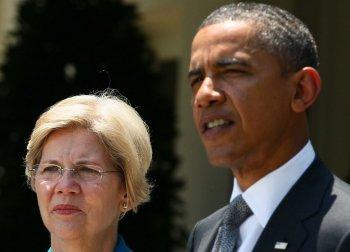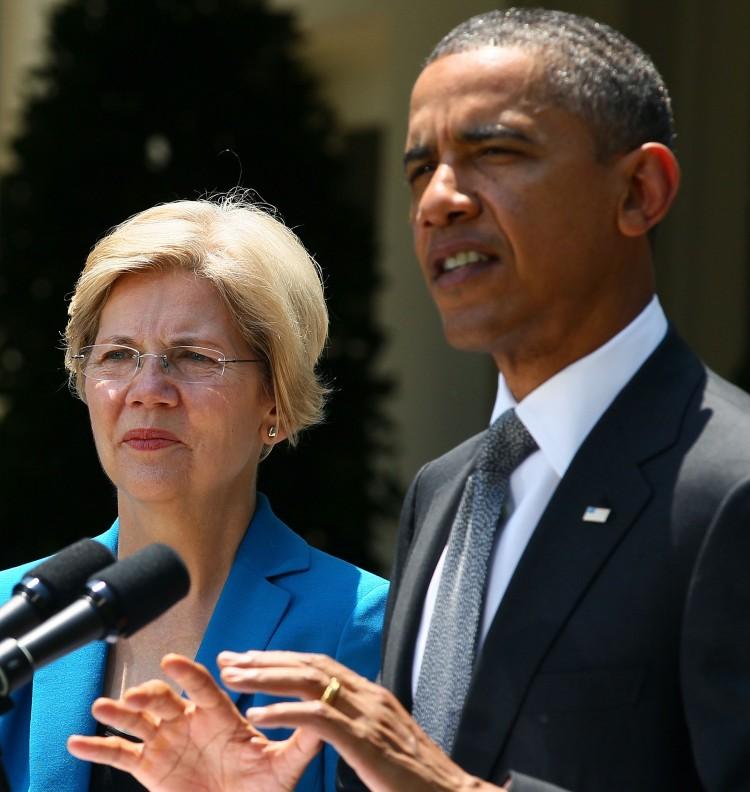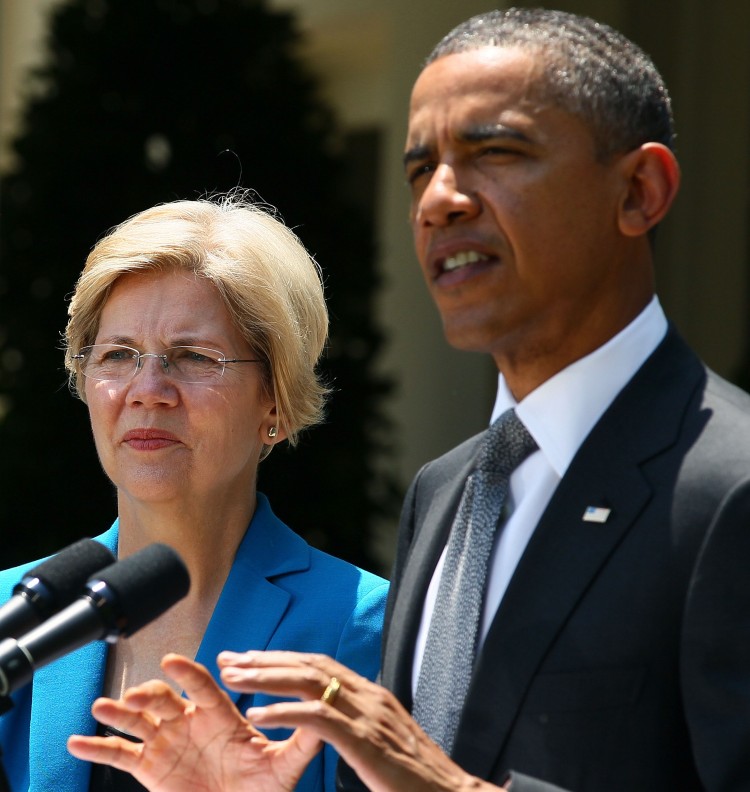US Consumer Protection Bureau to Open, Director or Not
A new Consumer Financial Protection Bureau (CFPB) is scheduled to open its doors on Thursday, despite controversy and continued efforts by critics suggesting that the agency has too much regulatory power.

CONSUMER AGENCY: President Barack Obama speaks during a press conference while special adviser on the Consumer Financial Protection Bureau Elizabeth Warren listens at the White House July 18. Mark Wilson/Getty Images
|Updated:
Reporting on the business of food, food tech, and Silicon Alley, I studied the Humanities as an undergraduate, and obtained a Master of Arts in business journalism from Columbia University. I love covering the people, and the passion, that animates innovation in America. Email me at andrea dot hayley at epochtimes.com
Author’s Selected Articles






